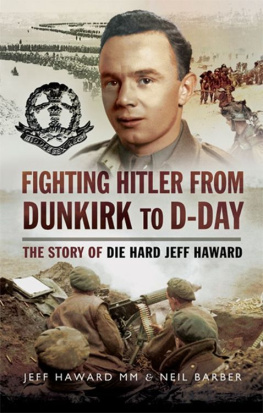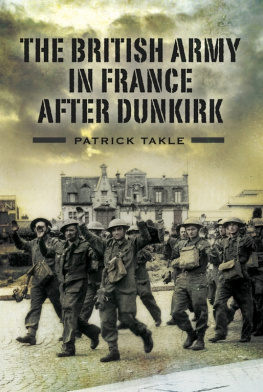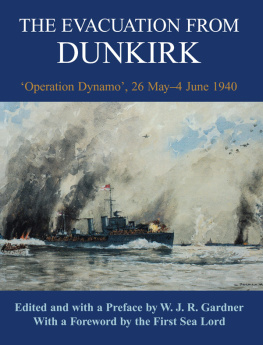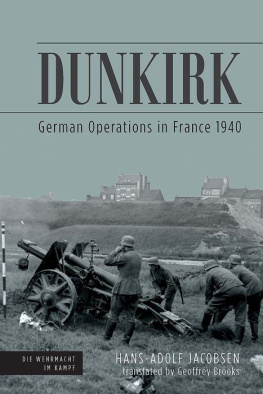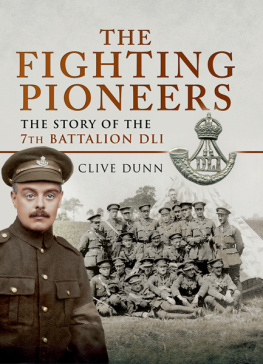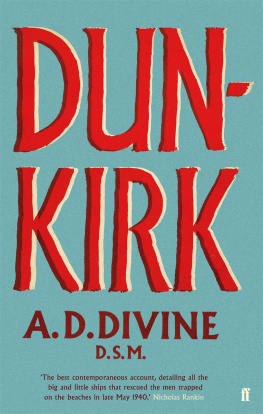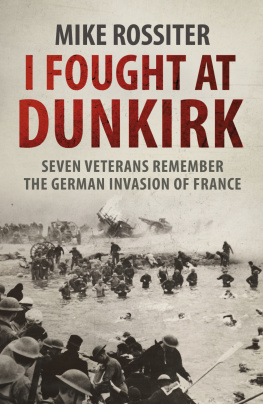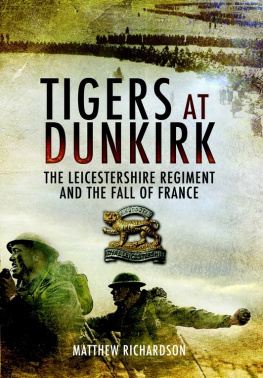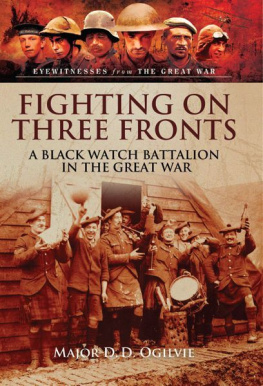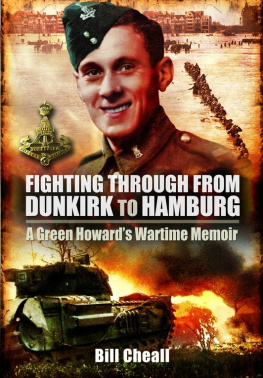To all those millions of boys and girls, who left their homes during 1939-45 to answer the call to defend freedom. To those who should have been rewarded for bravery, but were not. I am sure they all did their best. You cannot ask for more than that .

First published in Great Britain in 2015 by
Pen & Sword Military
an imprint of
Pen & Sword Books Ltd
47 Church Street
Barnsley
South Yorkshire
S70 2AS
Copyright Neil Barber and Jeff Haward 2015
ISBN 978 1 47382 699 1
eISBN 9781473855274
The right of Neil Barber and Jeff Haward to be identified as the Authors of this Work has been asserted by them in accordance with the Copyright, Designs and Patents Act 1988.
A CIP catalogue record for this book is available from the British Library
All rights reserved. No part of this book may be reproduced or transmitted in any form or by any means, electronic or mechanical including photocopying, recording or by any information storage and retrieval system, without permission from the Publisher in writing.
Pen & Sword Books Ltd incorporates the imprints of Pen & Sword Archaeology, Atlas, Aviation, Battleground, Discovery, Family History, History, Maritime, Military, Naval, Politics, Railways, Select, Transport, True Crime, and Fiction, Frontline Books, Leo Cooper, Praetorian Press, Seaforth Publishing and Wharncliffe.
For a complete list of Pen & Sword titles please contact
PEN & SWORD BOOKS LIMITED
47 Church Street, Barnsley, South Yorkshire, S70 2AS, England
E-mail: enquiries@pen-and-sword.co.uk
Website: www.pen-and-sword.co.uk
Contents
Preface
T he expression Die-Hard is normally used to denote an individual or group of people who will not budge from a position or opinion once taken or expressed. Maybe the stand taken is not logically sound, but the fact remains that if the person refuses to retreat and holds out against all odds he is called a Die-Hard. This term was first coined on 16 May 1811 during the bloodiest battle of the Peninsula War [18071812], at the Spanish town of Albuhera. Britain, Spain and Portugal were allied against the French forces of Napoleon Bonaparte. At Albuhera the Allies, under Marshal Beresford, faced the French Army commanded by Marshal Soult.
During this battle the 57th Regiment of Foot was outnumbered by four to one. The Commanding Officer, Colonel William Inglis took up position in front of his Fighting Villains as he called them. During the subsequent fighting he was hit in the neck and left breast by grape shot from the French artillery, but adamantly refused to be carried to the rear for treatment. He remained with the Colours, exalting his men to Die hard the 57th, die hard! and die hard they did. Of the 570 other ranks, the Regiment suffered 420 casualties, while twenty of the thirty officers became casualties. Marshal Beresford wrote afterwards, Our dead, particularly the 57th Regiment, were lying as they fought in the ranks, every wound in front. Even after this savage fight and such appalling casualties, the survivors were apparently eager to advance with the remainder of the Army, but Beresford called out, Stop, stop the 57th, it would be a sin to let them go on!
After word of Colonel Inglis actions became known, the soldiers of Wellingtons Army dubbed the 57th Regiment The Die-Hards and henceforth, they were always known as such.
The 57th Regiment of Foot was later renamed The Middlesex Regiment. It was the only regiment in the world whose nickname became part of the native language.
Chapter One
Upbringing
O n 16 November 1937, at the age of eighteen, I walked down to the local Army Drill Hall in Hornsey, North London. After passing the medical and filling out various forms, a former Guards Regimental Sergeant Major called Coulsden, held out a shilling. I took it and from that moment there was no way back. I had joined a Territorial Machine-Gun battalion, the 1/7th Middlesex. I was now a Die Hard!
* * *
We were a small family and during my growing up I never knew exactly why, not that I thought about it too much. Jeanne Catherine Elise Favez, my mother, was born in Lausanne, the French-speaking part of Switzerland. Her family wanted her to learn English, but without wealth the only way it could be done was to go into service. Therefore, at around the turn of the twentieth century while in her late teens, she came across to England and found such employment in a large house in Finchley, North London.
My father, Arthur Haward, worked for R. Whites Mineral Waters, delivering lemonade around the area on a horse and cart and it was through these calls that they actually met. When they eventually decided to get married, my mothers parents told her that if she married this Englishman, they would have nothing further to do with her. My fathers parents said exactly the same thing! They were married in 1911, but both families kept to their word and neither ever had the slightest thing to do with us.
I was born at 24 Beaconsfield Cottages, Long Lane, Finchley on 28 July 1919. This address was one in a row of small houses owned by my mothers employer in-service and when she got married, let it to my parents.
I had a brother and two sisters. Arthur was the eldest, being about eight years older, Marie was next in line and then Joan who was four years older than me.
My father had fought in The Great War, initially in the Royal Fusiliers, but then transferring to the Buffs. He lost a leg at Passchendaele and was invalided out. After recovering from his amputation, he was given a false leg and went back to work for R. Whites. This was fine while they used the horse and cart, particularly as the horse knew where to stop and start! Unfortunately, he had to give it up when the Company became mechanized and employed lorries.
There was an incident that occurred one summer when he was sitting in an old rocking chair. A fly had settled on his head and I decided to knock it off with a hammer! I dont recall the repercussions, but they must have been a bit violent because that is my only real memory of him. In 1927, he died from Hodgkins disease, aged forty-six.
For a few years after this, things must have been tough for my mother, when life was hard anyway, because the owner of the house would come around for the weekly rent, and I often recall him saying, Put that back in your pocket. Dont tell anyone.
The money situation would not have improved when just after leaving school, Arthur was caught scrumping and went before the magistrate who informed him that he could either go to prison or join the Army. He joined the Army and went into the 1st Light Anti-Aircraft Regiment, Royal Artillery. They were subsequently sent to India and stationed at Peshawar on the Khyber Pass, a strange posting considering the distinct lack of aircraft in the vicinity.
However, some time after, my mother became involved with a door-to-door salesman whose wife had passed away. He sold tea towels, items of clothing and suchlike. Arthur was obviously away but Marie and Joan were dead against this chap. Anyway, eventually a younger brother, Norman, arrived!
Before I began school Scarlet Fever was prevalent and very contagious. My sister caught it and had to go into an isolation hospital at a place called Coney Hatch. When she came out, of course I caught it and suffered red blotches, so it was my turn for a spell in an isolation hospital, this being at Coppetts Wood, in the area of Friern Barnet. I spent about three weeks in there and during the morning on which I was to be discharged, my left ear clicked and felt peculiar. I noticed a discharge on the pillow, but really wanted to go home so I just turned it over. The two nurses who came to change the bed never saw it. I went home, but still had to be in quarantine for another three weeks after being discharged. A few days later the area behind my ear began to swell, very quickly leaving me with a lump the size of a chickens egg that pushed my ear down and back. My mother decided to go and see a doctor who went around visiting schools. Squires Lane School was close by, on a lane that led up to the old Squires House itself. She described the symptoms and he told her that it could be very serious. Mum had Norman in a pushchair and had to walk back home, but the doctor did not want to wait, so he asked for the key to our house and immediately drove there. When I heard the lock go I thought it was my mother, but he called out for me and I hid behind the settee. Eventually of course, I was found and told that he was taking me to hospital in his car. On the way, as soon as he could, the doctor stopped and telephoned ahead because I still needed to be in quarantine, so I ended up back in the isolation hospital. My problem was very serious. I was suffering from mastoiditis, an infection that affected the air cells behind the ear. If not treated very quickly, it would be fatal. A special surgeon had to be brought in and he operated on me that night. I was put out with ether. A type of cage was laid over my face and a sponge squeezed against it from which dripped the ether. The surgeon said, Can you count to ten? I want you to count from ten backwards. I started counting and got less than halfway when everything started to get hot and go red. And then it exploded in my head and I felt myself sinking down.
Next page
